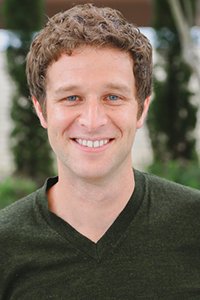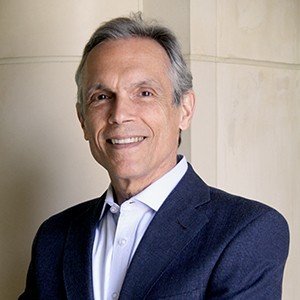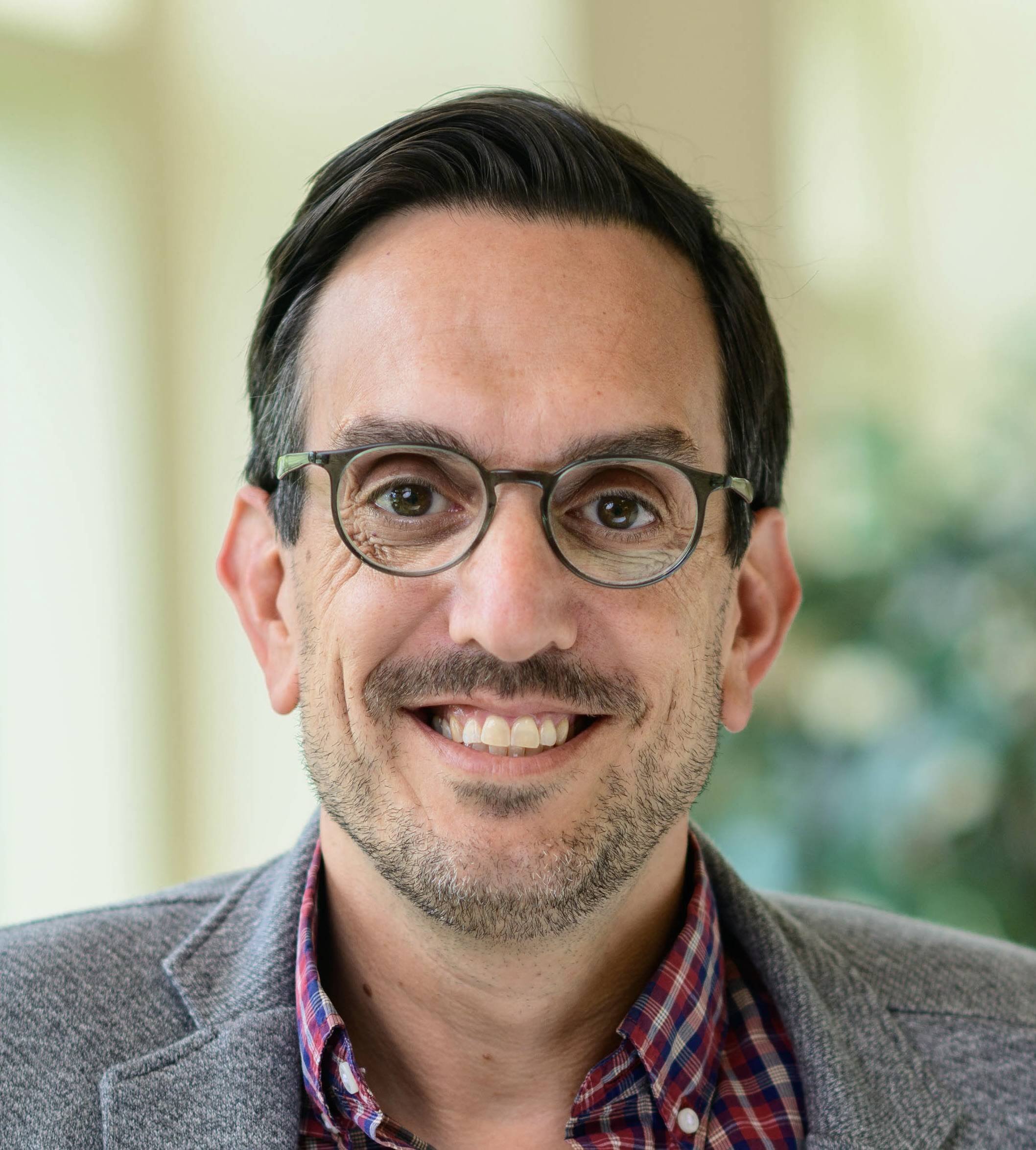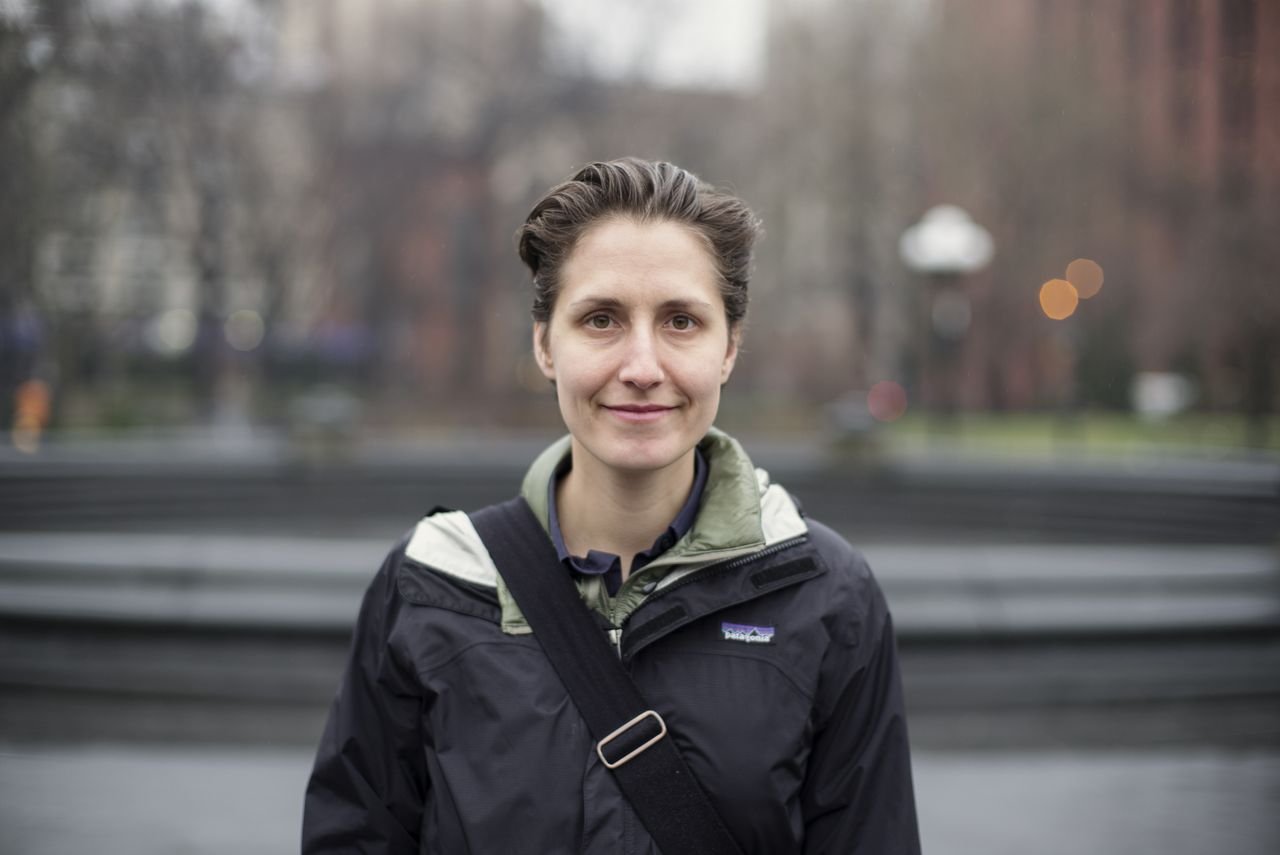PARTICIPANTS
-

Trinankur Banerjee
University of California, Santa Barbara
Trinankur Banerjee is a M.A./Ph.D. student at the department of Film and Media Studies. He did his bachelors in Electronics and Telecommunication Engineering from Jadavpur University in India and obtained a masters in Film Studies from the same institution later on. His research interests involve vernacular forms of comedy in cinema, its relation to cultural, political or social divides and its transnational variations, as well as history and impact of avant-garde in cinema in various forms.
-

Emily Carman
Chapman University
Emily Carman earned her Ph.D. from the Cinema and Media Studies program at the UCLA School of Theater Film and Television, where she channeled her passion for film history, especially classic Hollywood cinema in the 1930s, into various scholarly and professional pursuits in film. While her primary research expertise focus on film historiography, stardom, the Hollywood studio system and media industries, other scholarly interests include postwar European cinemas and moving image archive theory and practice.
-

Hye Jean Chung
Kyung Hee University
Hye Jean Chung is Professor of Cultural Studies in the School of Global Communication at Kyung Hee University in South Korea. After receiving her PhD at UCSB, Chung was a Mellon Postdoctoral Fellow in the Humanities in the Comparative Media Studies Program at Massachusetts Institute of Technology. Her book, Media Heterotopias: Digital Effects and Material Labor in Global Film Production (Duke University Press, 2018), examines transnational production pipelines and digital aesthetics. Her primary research interests include digital cinema, media technology, computer-generated visual effects, computer animation, film aesthetics, transnational cinema, global Hollywood, East Asian cinema, Korean cinema, Asian American cinema, and documentary films.
-

Lynn Comella
University of Nevada, Las Vegas
Lynn Comella is Professor of Gender and Sexuality Studies and Chair of the Department of Interdisciplinary, Gender, and Ethnic Studies. Her research explores the cultural and economic organization of the adult entertainment industry, including the ways that feminist entrepreneurs have disrupted ideas of “business as usual” within a historically male-dominated realm. She is the author of Vibrator Nation: How Feminist Sex-Toy Stores Changed the Business of Pleasure (Duke, 2017), which was a New York Times “Editors’ Choice,” and co-editor of New Views on Pornography: Sexuality, Politics, and the Law (Praeger, 2015).
-

Corey Creekmur
University of Iowa
Corey K. Creekmur is jointly appointed in Cinematic Arts and English and is affiliated with the Department of Gender, Women’s and Sexuality Studies. He is also affiliated with the South Asian Studies Program and directs the Institute for Cinema and Culture. His teaching and research focus on international popular cinema (especially American and South Asian), cross-cultural film genres, and the way in which such films interact with other media (such as music) as well as popular discourses of race, gender, and sexuality. His work in American literature and popular culture within the Department of English deals with popular genres as well, including detective fiction and comics (newspaper strips, comic books, and graphic novels).
-

Jeffrey J. Douglas
Criminal Defense Attorney
Jeffrey Douglas is a Santa Monica criminal defense lawyer, representing all segments of the adult entertainment industry since 1982. He has chaired the Free Speech Coalition Board of Directors since 1995, committed to organizing and advocating for the people in adult entertainment, and resisting government intrusion. Mr. Douglas appears regularly as a media commentator, and on invitation, has testified before Congress.
-

Ryan Bowles Eagle
California State University, Dominguez Hills
Dr. Ryan Bowles Eagle is an associate professor in the Communications Department and the Program Coordinator for the Film, Television and Media B.A degree. She specializes in media activism, feminist media studies, and documentary. Her work has been published in journals including Feminist Media Studies, European Journal of Cultural Studies, Social Semiotics, Red Feather Journal, and Media Fields Journal. She has presented at national and international conferences such as Society for Cinema and Media Studies, National Women's Studies Association, Popular Culture Association/American Culture Association, and Console-ing Passions, and is a former managing editor for Camera Obscura: Feminism, Culture, and Media Studies.
-

Anna Everett
University of California, Santa Barbara
Dr. Anna Everett is a UCSB Professor Emerita of Film, Television and New Media Studies. During her 22 years at UCSB she was Director, Center for Black Studies; Dept. Chair Film and Media Studies; and Interim Associate Vice Chancellor for Diversity, Equity, and Academic Policy. She is a two-time Fulbright Senior Scholar Awardee in Tunisia; the Belle Van Zuylen Visiting Professor in the Netherlands, and others. Books include Returning the Gaze: A Genealogy of Black Film Criticism, 1909-1949; Learning Race and Ethnicity: Youth and Digital Media (the MacArthur Foundation); her award-winning Digital Diaspora: A Race for Cyberspace, and many more. In 2020 she was elected to Santa Barbara City College's Board of Trustees. Currently, she serves as Vice-President of the Board.
-

Scott Ferguson
University of South Florida
Scott Ferguson holds a Ph.D. in Rhetoric and Film Studies from UC Berkeley and is presently co-director of the Film & New Media Studies Track in the Department of Humanities & Cultural Studies at the University of South Florida. He is also a Research Scholar at the Binzagr Institute for Sustainable Prosperity and Director of the Humanities Division of the Modern Money Network. His current research and pedagogy focus on aesthetic theory; the history of digital animation and visual effects (especially in the age of the Hollywood blockbuster); essayistic writing across media platforms; and Modern Monetary Theory and critiques of neoliberalism.
-

Sage Gerson
Rhode Island School of Design
Sage Gerson (she/hers) is a settler scholar who researches and teaches in the fields of Indigenous literatures and ecologies; environmental justice; 20th- and 21st-century literatures; the energy humanities and infrastructure studies; Native, Black and Women of Color feminisms; anticolonial and decolonial theory; and futurisms, futurity and speculative fiction. At RISD, in addition to teaching in Literary Arts and Studies, she also teaches as part of the Nature-Culture-Sustainability Studies (NCSS) and Global Arts and Cultures (GAC) graduate programs, as well as the NCSS undergraduate concentration. In all of her courses, Gerson asks students to dwell with cultural imaginaries that provide glimpses of a differently perceivable world, where other formations of environment, identity, power and resistance are possible.
-

Bishnupriya Ghosh
University of California, Santa Barbara
Bishnupriya Ghosh publishes in global media cultures, environmental media, and critical health studies. Her early research includes two monographs, When Borne Across: Literary Cosmopolitics in the Contemporary Indian Novel (Rutgers University Press, 2004) and Global Icons: Apertures to the Popular (Duke University Press, 2011), while her current research is exemplified by the co-edited volume The Routledge Companion to Media and Risk (Routledge, 2020) and a new monograph, The Virus Touch: Theorizing Epidemic Media (Duke University Press, 2023).
-

Hannah Goodwin
Mount Holyoke College
Hannah Goodwin is assistant professor of Film and Media Studies at Mount Holyoke College. Her research revolves around the intersections between scientific and mediatized conceptions of time. Her book manuscript Stardust: Cinematic Archives at the End of the World explores the entanglements of astronomy and cinema as they channel the past and imagine archives for a future beyond human existence. She has recently published essays in several edited collections, including Uncanny Histories and Contemporary Visual Cultures of the Sublime.
-

Heather Hendershot
Northwestern University
Heather Hendershot studies TV news, conservative media, political movements, and American film and television history. Her courses emphasize the interplay between creative, political, technical, and regulatory concerns, and how those concerns affect what we see on the screen (big or little). In the winter 2024 quarter at Northwestern she will teach a doctoral elective seminar entitled “Media and American Politics.” Her most recent book, When the News Broke: Chicago 1968 and the Polarizing of America, received an award from the Pattis Family Foundation/Newberry Library, was praised in the New York Review of Books, and in February 2023 was chosen as a “Best Book” by the New Yorker.
-

Julia Himberg
Arizona State University
Julia Himberg is associate chair of English and associate professor of Film & Media Studies at Arizona State University. She is the author of The New Gay for Pay: The Sexual Politics of American Television Production. She has published research in Communication, Culture, & Critique, Television & New Media, JCMS and the anthologies Ryan Murphy’s Queer America, From Networks to Netflix: A Guide to Changing Channels, and Television Studies in Queer Times. She served as the Special Features Editor for JCMS from 2017-2022. Outside of the university, she translates her research on social change and media representation of the LGBTQ community into persuasive messaging guidance for clients. She also serves as a board member for GLSEN Arizona, which works to provide safe, supportive, and LGBTQ-inclusive K-12 education. Her work has been featured in the FX docuseries Pride, BBC News, and PBS Newshour, among others.
-

Kathy Kasic
California State University, Sacramento
Kathy Kasic is a director/cinematographer and Associate Professor at California State University Sacramento. Twenty years ago she traded researching evolutionary biology in the Ecuadorian Amazon for filmmaking. Since then her artistic vision and craving for adventure have brought her to film off the bow of a ship, underwater in wild mountain rivers, and on the ice fields of Greenland and Antarctica. Using a sensorial emphasis on place to unveil the human relationship with the natural world, her 100+ productions have appeared at international festivals, on television (BBC, Discovery, Smithsonian, PBS, National Geographic), art galleries, museums (The Hirshhorn, Portland Art Museum, The Crocker), and won numerous awards.
-

Sarah Lerner
University of California, Santa Barbara
Sarah Lerner holds a Ph.D. in Film and Media Studies from the University of California, Santa Barbara. Her work focuses on women in the judiciary, feminism, art practice, and environmental media. She has published articles and edited collections for Media Fields Journal, Transformative Works and Cultures, and Media + Environment. Sarah is the former Managing Editor of Camera Obscura: Feminism, Culture, and Media Studies.
-

Ross Melnick
University of California, Santa Barbara
Ross Melnick is professor of film and media studies at University of California, Santa Barbara. He was named an NEH Fellow (2015) and an Academy Film Scholar (2017) for his forthcoming book, Hollywood's Embassies: How Movie Theaters Projected American Power Around the World (Columbia University Press, 2022). He is also the author of American Showman: Samuel 'Roxy' Rothafel and the Birth of the Entertainment Industry (Columbia University Press, 2012), co-editor of Rediscovering U.S. Newsfilm: Cinema, Television, and the Archive (AFI/Routledge, 2018), and co-founder of the Cinema Treasures website.
-

Kyna McClenaghan
University of California, Santa Barbara
In Fall 2023, Kyna McClenaghan will be starting her fourth year as a PhD candidate in Film and Media Studies at UC Santa Barbara, broadly researching occult media histories. Her dissertation focuses on the intersections of California media industries and occult practices between the 1930s and 1970s. Her other projects include the Alt-Right Media Literacy Series (a speaker series on how media is used by the alt-right and/or Far Right), and the Californian Ideology Project (a working group centered on the political and media industry stakes of Californian ideology). She currently works as the Managing Editor of Camera Obscura: Feminism, Culture, and Media Studies.
-

Rahul Mukherjee
University of Pennsylvania
Rahul Mukherjee completed his doctoral studies in Film and Media Studies at University of California, Santa Barbara, with graduate emphases in ‘Technology and Society’ and ‘Global Studies’. His academic preoccupations often meander into imaginings about media’s role with(in) alternative futures for/of politics and technology. He has been a fellow at the Center for the Humanities, Utrecht University and Atkinson Center for Sustainable Future fellow at the Society for the Humanities, Cornell University (2017-18). Drawing on the conceptual lenses of cultural studies, media theory, and science studies, he has written on database management systems, advertising cultures of mobile telephony, Bollywood thrillers, development discourses, chronic toxicity, and translocal documentaries.
-

Joshua Neves
Concordia University
Professor Neves' research centers on global and digital media, with a particular focus on video, TV, and digital culture; China, Asia and the Global South; cultural theory and political theory; media urbanism; digital ethnography; cultures of optimization. He is the co-editor (with Bhaskar Sarkar) of Asian Video Cultures: in the Penumbra of the Global (Duke University Press, 2017), and author of Underglobalization: Beijing’s Media Urbanism and the Chimera of Legitimacy (Duke University Press, March 2020). Dr. Neves is also lead author of Technopharmacology (Minnesota University Press / Meson Press, 2022). His work is published in Media Theory, Cultural Critique, Social Text, Discourse, Made in China Journal, Cinema Journal, The Media Fields Journal, Culture Machine, Review of Communication, Rethinking Chinese Television, among others.
-

Thomas Patrick Pringle
University of Southern California
Thomas Patrick Pringle is an Assistant Professor of Cinema and Media Studies at the University of Southern California. He received his Ph.D. in Modern Culture and Media from Brown University. Prior to joining USC, Pringle was Postdoctoral Research Fellow with the University of Chicago’s Institute on the Formation of Knowledge and Assistant Professor of Communication and Environmental Studies at Tulane University. He has held research fellowships with the Digital Cultures Research Lab at Leuphana University, the SenseLab at Concordia University, and SSHRC. Pringle focuses on historical approaches to film and media, with an emphasis on how media shape how environments are conceived in a given place and time and how technologies interact with physical environments. With Gertrud Koch and the late Bernard Stiegler, Pringle co-authored Machine (University of Minnesota Press/Meson Press, 2019).
-

Michael Renov
University of Southern California
Michael Renov, professor of Critical Studies and Vice Dean for Academic Affairs, is the author of Hollywood's Wartime Woman: Representation and Ideology and The Subject of Documentary, editor of Theorizing Documentary, and co-editor of Resolutions: Contemporary Video Practices, Collecting Visible Evidence, The SAGE Handbook of Film Studies and Cinema’s Alchemist: The Films of Peter Forgacs. In 1993, Renov co-founded Visible Evidence, a series of international and highly interdisciplinary documentary studies conferences that have, to date, been held on five continents. He is one of three general editors for the Visible Evidence book series at the University of Minnesota Press, which has published 27 volumes on various aspects of nonfiction media since 1997.
-

Daniel Reynolds
Emory University
Daniel Reynolds’s research focuses on media, embodiment, and the mind. He is interested in particular in how films and video games depict psychology and stimulate psychological responses in their users. At Emory, he teaches courses in media theory, video games, media technology, authorship, and the psychology of media use. Dr. Reynolds is the author of the book Media in Mind (Oxford University Press, 2019) and has published essays in Film Quarterly, Journal of Cinema and Media Studies, and Game Studies, among other venues. He is currently working on a new book about the relationship between film technology and conceptions of cinematic authorship. He is a faculty affiliate of Emory’s Center for Mind, Brain, and Culture.
-

Jason Davids Scott
Arizona State University
Jason Davids Scott earned a doctorate in theatre in 2009 at the University of California Santa Barbara, and also earned a master's with honors from UCSB in 2004. At ASU, Dr. Scott has collaborated with students, staff, and faculty to create unique streaming, promotional, and educational videos to promote community and support the mission of ASU. These efforts include helping to produce promotional videos for the Mesa Arts Center Museum Store and Visit Mesa; and helping to create and produce several web-based episodes for Zombified Media, an ASU-based collective focused on studying the literal and symbolic meaning of the zombie apocalypse for YouTube's Channel Zed.
-

John Sbardellati
University of Houston
My interests include twentieth century U.S. political, cultural, and diplomatic history. I am especially interested in the connections between American domestic politics and foreign relations, and the way in which these connections surface in the policies of the national security state. I received my Ph.D. from the Department of History at the University of California, Santa Barbara, in 2006. My book, J. Edgar Hoover Goes to the Movies: The FBI and the Origins of Hollywood’s Cold War, was published by Cornell University Press in 2012. It analyzes the FBI’s probe of the motion picture industry and its efforts to rein in the production of what it considered politically-suspect movies.
-

Noah Shenker
Colgate University
Noah Shenker is a Visiting Associate Professor in University Studies at Colgate University. Noah’s research and teaching traverse Holocaust and Genocide Studies, Jewish Studies, and Film and Media Studies. That interdisciplinary approach was at the center of his first book, Reframing Holocaust Testimony, published in 2015 by Indiana University Press as part of its Modern Jewish Experience series. Organized within a comparative framework, that book looks at three of the most extensive and distinctive archives of Holocaust testimony in the world: the USC Shoah Foundation Institute, the Fortunoff Video Archive for Holocaust Testimonies, and the United States Holocaust Memorial Museum.
-

Greg Siegel
University of California, Santa Barbara
Greg Siegel researches and teaches in media history and theory, science and technology studies, cultural and critical theory, and sound studies. He is the author of Forensic Media: Reconstructing Accidents in Accelerated Modernity (Duke UP). His essays have appeared in Cabinet, Communication and Critical/Cultural Studies, Discourse, Grey Room, Rethinking Disney: Private Control, Public Dimensions (Wesleyan UP), The Routledge Companion to Media and Risk, and Television and New Media. He is currently writing a book on the cultural history of unexplained sounds.
-

Nicole Starosielski
University of California, Berkeley
Nicole Starosielski conducts research on global internet and media distribution, communications infrastructures ranging from data centers to undersea cables, and media’s environmental and elemental dimensions. Starosielski is author or co-editor of over thirty articles and five books on media, infrastructure, and environments, including: The Undersea Network (2015), Media Hot and Cold (2021), Signal Traffic: Critical Studies of Media Infrastructure (2015), Sustainable Media: Critical Approaches to Media and Environment (2016), Assembly Codes: The Logistics of Media (2021), as well as co-editor of the “Elements” book series at Duke University Press. Starosielski’s most recent project, Sustainable Subsea Networks, is focused on increasing the sustainability of digital infrastructures.
-

Ethan Tussey
Georgia State University
Ethan Tussey (Ph.D. University of California – Santa Barbara, 2012) is Interim Director and an Associate Professor of Film and Media at Georgia State University. His book, The Procrastination Economy: The Big Business of Downtime (NYU Press, 2018), details the economic and social value of mobile device use in the context of the workplace, the commute, the waiting room, and the living room. His work explores the relationship between the entertainment industry and the digitally empowered public. He has contributed book chapters on creative labor, sports television, sports gambling, connected viewing, and crowdfunding to peer-reviewed journals and anthologies. He is also the Coordinating Editor of In Media Res and the co-founder of the Atlanta Media Project.
-

Diane Waldman
University of Denver
Diane Waldman is an associate professor Emerita in the Media, Film, and Journalism Studies department at the University of Denver, where she was also affiliated with the Gender and Women's Studies program. She is the co-editor (with Janet Walker) of Feminism and Documentary (University of Minnesota Press, 1999) and co-editor (with Maureen Turim) of the recently published Desire and Consent in Representations of Adolescent Sexuality with Adults (Routledge, 2024). She is the author of numerous essays on feminism and film history, film and social history, and popular culture and the law in such journals as Film History, Jump Cut, Camera Obscura, Cinema Journal, and The Velvet Light Trap. In 1998-1999 she was a Liberal Arts Fellow at Harvard Law School, and she served on the Advisory Board of Studies in Documentary Film. Currently she is a member of the selection committee for the Denver Jewish Film Festival.
-

Colin Williamson
University of Oregon
Colin Williamson is a historian of animation, special effects, and nontheatrical film who specializes in early cinema’s place in international histories of art, science, and technology. His interests are wide-ranging and include everything from the history of film theory and representations of the landscape in American cinema to media archaeology and experimental uses of film and media archives. Colin is the author of Hidden in Plain Sight: An Archaeology of Magic and the Cinema (Rutgers University Press, 2015), which charts the history of special effects films as forms of popular science education; and a new book, Drawn to Nature: American Animation in the Age of Science (under contract at University of Minnesota Press), which examines the overlooked impacts that the natural sciences and discourses on the environment have had on stylistic trends in mainstream American cartoons. He is also currently Associate Editor at Animation: An Interdisciplinary Journal.
-
Kathy Carnahan
Kathy Carnahan, honorary guest, was invited to meet with Professors Penley, Walker, and Wolfe and discuss their shared history in our department. Kathy worked in Film and Media Studies from its infancy as one of its first secretaries in 1974 until her retirement as the Management Services Officer in 2008.